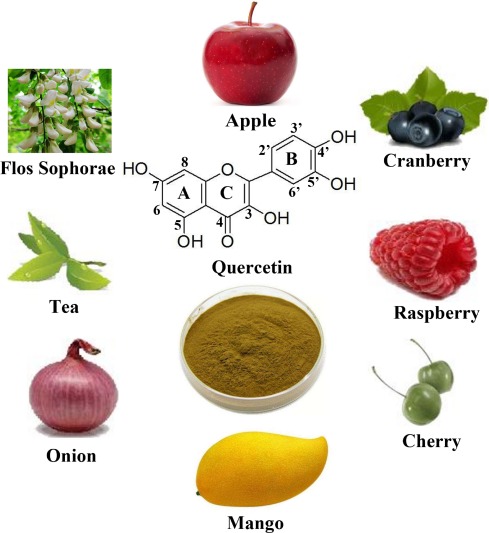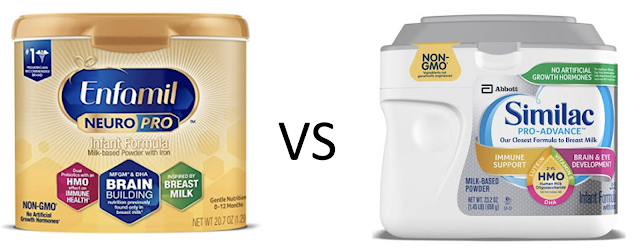Vitamin C and Quercetin - FLCCC Protocol for COVID-19
Quercetin is a natural antihistamine and anti-inflammatory plant pigment that boosts your immune system and may work to control viral replication, according to some research. It allows zinc to exert its proven antiviral properties; in treating COVID-19, quercetin may also lower inflammation, help clear mucus, prevent ventilator-induced damage and support immunity.

Quercetin was initially found to provide broad-spectrum protection against SARS coronavirus in the aftermath of the SARS epidemic that broke out across 26 countries in 2003. Now, some doctors are advocating its use against SARS-CoV-2, in combination with vitamin C, noting that the two have synergistic effects.

Incidentally, ascorbic acid (vitamin C) and the bioflavonoid quercetin (originally labeled vitamin P) were both discovered by the same scientist — Nobel prize winner Albert Szent-Györgyi. Quercetin’s antiviral capacity has been attributed to five main mechanisms of action:
- Inhibiting the virus’ ability to infect cells by transporting zinc across cellular membranes
- Inhibiting replication of already infected cells
- Reducing infected cells’ resistance to treatment with antiviral medication
- Inhibiting platelet aggregation — and many COVID-19 patients suffer abnormal blood clotting
- Promoting SIRT2, thereby inhibiting the NLRP3 inflammasome assembly involved with COVID-19 infection
In February 2021, the FLCCC team has updated the I-MASK+ protocol for prophylaxis and at home treatment of early stage disease.
- Vitamin D3: 1000–3000 IU/day. Note RDA (Recommended Daily Allowance) is 800–1000 IU/day. The safe upper-dose daily limit is likely < 4000 IU/day. Vitamin D deficiency has been associated with an increased risk of acquiring COVID-19 and from dying from the disease. Vitamin D supplementation may therefore prove to be an effective and cheap intervention to lessen the impact of this disease, particularly in vulnerable populations, i.e. the elderly, those of color and obese. (Amazon)
- Vitamin C: 500 - 1,000 mg BID (twice daily)
- Quercetin: 250 mg daily. It is likely that vitamin C and quercetin have synergistic prophylactic benefit. Quercetin should be used with caution in patients with hypothyroidism and TSH levels should be monitored. (Amazon)
- Melatonin: 6 mg before bedtime (causes drowsiness). (Amazon)
- Zinc: 30 - 40 mg/day (elemental zinc). Zinc lozenges are preferred. (Amazon)
- Ivermectin for prophylaxis in high-risk individuals (> 60 years with co-morbidities, morbid obesity, long term care facilities, etc). 0.2 mg/kg Day 1, Day 3 and then followed by biweekly dosing (one dose every two weeks). (also see ClinTrials.gov NCT04425850). NB. Ivermectin has a number of potentially serious drug-drug interactions. Please check for potential drug interaction at Ivermectin Drug Interactions - Drugs.com. The most important drug interactions occur with cyclosporin, tacrolimus, anti-retroviral drugs, and certain anti-fungal drugs.
- Vitamin D3 — 4000 IU/day. (Amazon)
- Vitamin C: 500 - 1,000 mg BID (twice daily) (Amazon)
- Quercetin: 250 mg twice a day. (Amazon)
- Melatonin: 10 mg before bedtime (causes drowsiness). (Amazon)
- Zinc: 100 mg/day. Zinc lozenges are preferred. (Amazon)
- Ivermectin: 0.2 mg/kg per dose. One dose daily - minimum 2 days, maximum 5 days.
- Aspirin: 325 m/day unless contraindicated.
- Pulse Oximeter: FLCCC also recommend monitoring your oxygen saturation with a pulse oximeter and to go to the hospital if you get below 94%.
 |
| Image credit: Covid19criticalcare.com |
“Ascorbic acid is a crucial vitamin necessary for the correct functioning of the immune system. It plays a role in stress response and has shown promising results when administered to the critically ill. Quercetin is a well-known flavonoid whose antiviral properties have been investigated in numerous studies.
There is evidence that vitamin C and quercetin co-administration exerts a synergistic antiviral action due to overlapping antiviral and immunomodulatory properties and the capacity of ascorbate to recycle quercetin, increasing its efficacy.
Safe, cheap interventions which have a sound biological rationale should be prioritized for experimental use in the current context of a global health pandemic.”
The paper presents evidence for the use of vitamin C and quercetin — based on their biological actions and pharmacokinetics profiles — both as prophylaxis in high-risk populations, and as an adjunct to drugs such as Remdesivir or convalescent plasma in the treatment of hospitalized COVID-19 patients.
The Front Line COVID-19 Critical Care (FLCCC) Alliance was initially formed as a working group under “emergency” conditions of the early COVID-19 pandemic in response to multiple early reports of COVID patients with an inexplicably high need for prolonged mechanical ventilation and an excessive mortality associated with the prevailing “supportive care only” recommendations disseminated by the majority of national and international health care organizations.
As a group of highly published leaders in critical care with expertise in therapies directed at severe infections, in particular “HAT” therapy first developed by Dr. Paul Marik for the treatment of bacterial sepsis, and along with published high patient survival rates from our centers, we were contacted by equally concerned and motivated colleagues from other specialties.
With the increasing publications in addition to our rapidly accumulating personal clinical experiences and investigations into the pathophysiology of COVID-19 patients, FLCCC formulated the MATH+ Hospital Treatment Protocol in March 2020. On August 5, 2020, FLCCC published their findings in the rationale paper Scientific Review of COVID-19 and MATH+.
Based on these findings, the FLCCC team has developed the I-MASK+ protocol for prophylaxis and at home treatment of early stage disease. You can read the FLCCC Scientific Review of the Emerging Evidence Supporting the Use of Ivermectin in the Prophylaxis and Treatment of COVID-19.
A more detailed story of the inception and evolution of the FLCCC Alliance can be read here.
.png)
.png)


.png)
.jpg)




Comments